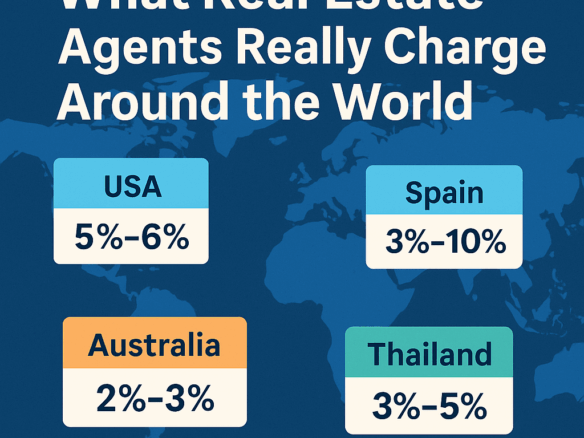If you are selling home, our step-by-step guides will ensure that you are more than familiar with the process of listing, advertising, viewing and pricing your property. But can you afford to sell? It may sound like a bizarre questions, but there are a number of hidden costs involved when selling your home.
Before you start budgeting for buying a new residence, read our handy checklist to the selling costs that you can expect to encounter.
Estate agent fees
If you use an estate agent to market your home, you can expect them to charge commission on the eventual sale price. This fee will amount to around 2 to 3 per cent of the figure, so the more expensive the home, the more money you will have to pay.
Auction fees
One route people often don’t consider is putting your home under the hammer, but this will also require a commission to be paid to the auction house responsible for advertising and arranging the bidding on your property. This is a similar amount to an estate agent’s fee, equally approximately 2 per cent of the final price. Some houses may also charge for cataloguing and promotional services, which would be payable regardless of whether the auction is successful or not.
Private advertising costs
Selling your home privately is a popular option for owners hoping to find a buyer without having to pay commission to agents or other professionals. FSBO services, such as Sell My Property, can save a lot of money through subscription or fixed fee packages. This can cost several hundred pounds up-front, but will not vary or catch you out later with a surprise fee.
Legal fees
Regardless of the method you take to sell your home, you will need the services of a solicitor or a conveyancer to carry out the process of arranging contracts and sorting out other legal details. Depending on which you choose, costs can vary – solicitors are more expensive than conveyancers – but will start from £200 and can go up to £500 or more, depending on the exact services you require.
Insurance
Why would you insure a property you are selling? This isn’t that kind of insurance: an indemnity policy will cover any defects in the title of the property, for example a missing document. If such a defect becomes a problem, this insurance would pay the buyer compensation without landing you with additional costs. This is optional, although some solicitors may suggest it.
Mortgage fees
If you are finishing the paying off of your mortgage, or switching to a new lender, you can expect to be charged an exit fee by your current mortgage provider. Repaying your lone early can also invoke a fee of up to 4 per cent of your outstanding loan, depending on the lender and type of mortgage you have previously taken out.
EPC
An Energy Performance Certificate is now a legal requirement for a UK home, whether it is being sold privately or through an estate agency. If you are not using an agent, who will help to arrange this for you, you will have to order a certificate yourself. Registering for an EPC can be done online through www.gov.uk and will usually cost from £60.
Other costs
Moving home isn’t a simple process, with many cogs in the overall machine. Each of those can carry a cost, from removal companies, which help you to shift your belongings between one residence and another, to cleaning companies, decorating supplies or temporary storage for your belongings. Moving into a new home will also involve the ending and beginning of utility contracts, be it the Internet or your electricity and gas. Depending on your provider, disconnections and connections can prompt one-off charges.
Photo: Images_of_Money



